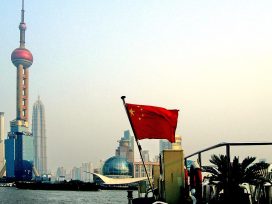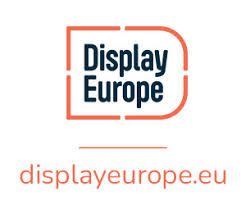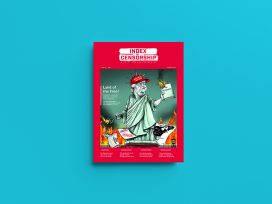
While civilizational rhetoric in the West reflects a sense of threat, globally it is recognition-seeking. Common to all civilizationalisms, however, is a blurring of the distinction between authoritarianism and democracy.
Nine years ago, a slim majority of UK voters chose to leave the European Union – without a clear plan or the tools to make it happen. Five years after the de facto departure, relations are slowly being repaired, driven in part by the increasingly unpredictable political climate in the United States.
The greatest winner of Brexit has been Nigel Farage. Almost everyone else are on the losing side, it seems. This political maneuver was conceived as a communications play and not as a policy, and IWM rector Misha Glenny evaluates it as a grave mistake on today’s episode of Standard Time
Glenny reminds that after the vote was held of 23rd of June 2016 and 51,89% voted for leaving the EU, the following day Brits started to frantically google questions like “What does it mean to leave the EU” and “What is the EU”.
Brexit has taken down five prime ministers so far, and a since a Labour government took the baton from the long-time ruling conservatives, they are navigating ever closer to EU and are making clear attempts to salvage continental relations. And for good reason: as a global exception, the UK now operates in a bit of a blind spot, without sufficient international alliances with its neighbours, reminds international law expert Roos Fransen in this discussion.
It would be, however, foolish, to blame Brexit on the individual voters, political analyst Luke Cooper says, as it seems dark money had a significant role to play. The National Crime Agency started investigating Arron Banks, the biggest Brexit Donor, and others linked to the Leave campaign for possible criminal activity during the Brexit referendum. This happened after the Electoral Commission found reason to believe that Banks was not the real source of the 8 million pounds he gave to pro-Brexit groups. The investigation began after reports from openDemocracy and others questioned how Banks could afford to be the biggest political donor in UK history.
Looking into the future
Five years have passed since the separation, and today the UK’s fate is much less certain: Donald Trump’s erratic and arbitrary foreign policy has shaken up the economic world order, which has shown the importance of a United Europe. Will this change the UK’s relationship with the EU member states?
Today’s guests discuss the scenarios and the lessons learnt.
Roos Fransen is a Dutch researcher focusing on European and International Law at the University of Vienna. Her work spans a broad range, including the work of the European Union.
Misha Glenny is the Rector of the Institute for Human Sciences (IWM) in Vienna, one of Austria’s leading advanced research institutes. A long-time BBC Central Europe Correspondent, he covered the revolutions in Eastern Europe and the wars in the former Yugoslavia. Misha is a sought-after speaker on the geo-politics of cyber security and organised crime.
Luke Cooper is an academic at the LSE and a co-host of the Another Europe podcast. His latest book, Authoritarian Contagion; the Global Threat to Democracy, situated the politics of Brexit and Trump in the global resurgence of far right nationalism.
Réka Kinga Papp anchor
Daniela Univazo writer-editor
Merve Akyel art director, Eurozine
Szilvia Pintér producer
Julia Sobota captions and translations
Zsófia Gabriella Papp digital producer
Priyanka Hutschenreiter project manager
Judit Csikós head of finance
Réka Kinga Papp editor-in-chief
Csilla Nagyné Kardos office administration
Senad Hergić, producer
Leah Hochedlinger, video recording
Marlena Stolze, video recording
Clemens Schmiedbauer, video recording
Richard Brusek, sound recording
Nóra Ruszkai video editor
István Nagy lead video editor
Milán Golovics dialogue editor
Dániel Nagy dialogue editor
Victor Maria Lima animation
Crypt-of-Insomnia theme music
Disclosure
This talk show is a Display Europe production: a ground-breaking media platform anchored in public values.

This programme is co-funded by the European Commission and the European Cultural Foundation.
Importantly, the views and opinions expressed here are those of the authors and speakers only and do not necessarily reflect those of the European Union or the European Education and Culture Executive Agency (EACEA). Neither the European Union nor the EACEA can be held responsible for them.

Published 13 June 2025
Original in English
Subscribe to know what’s worth thinking about.

While civilizational rhetoric in the West reflects a sense of threat, globally it is recognition-seeking. Common to all civilizationalisms, however, is a blurring of the distinction between authoritarianism and democracy.

Free speech in the US: how book bans are targeting independent thought; why Trump’s assault on education imitates Erdoğan’s; what the closure of Radio Free Asia means for the region’s information space; and how American liberals can learn from Soviet dissidents.